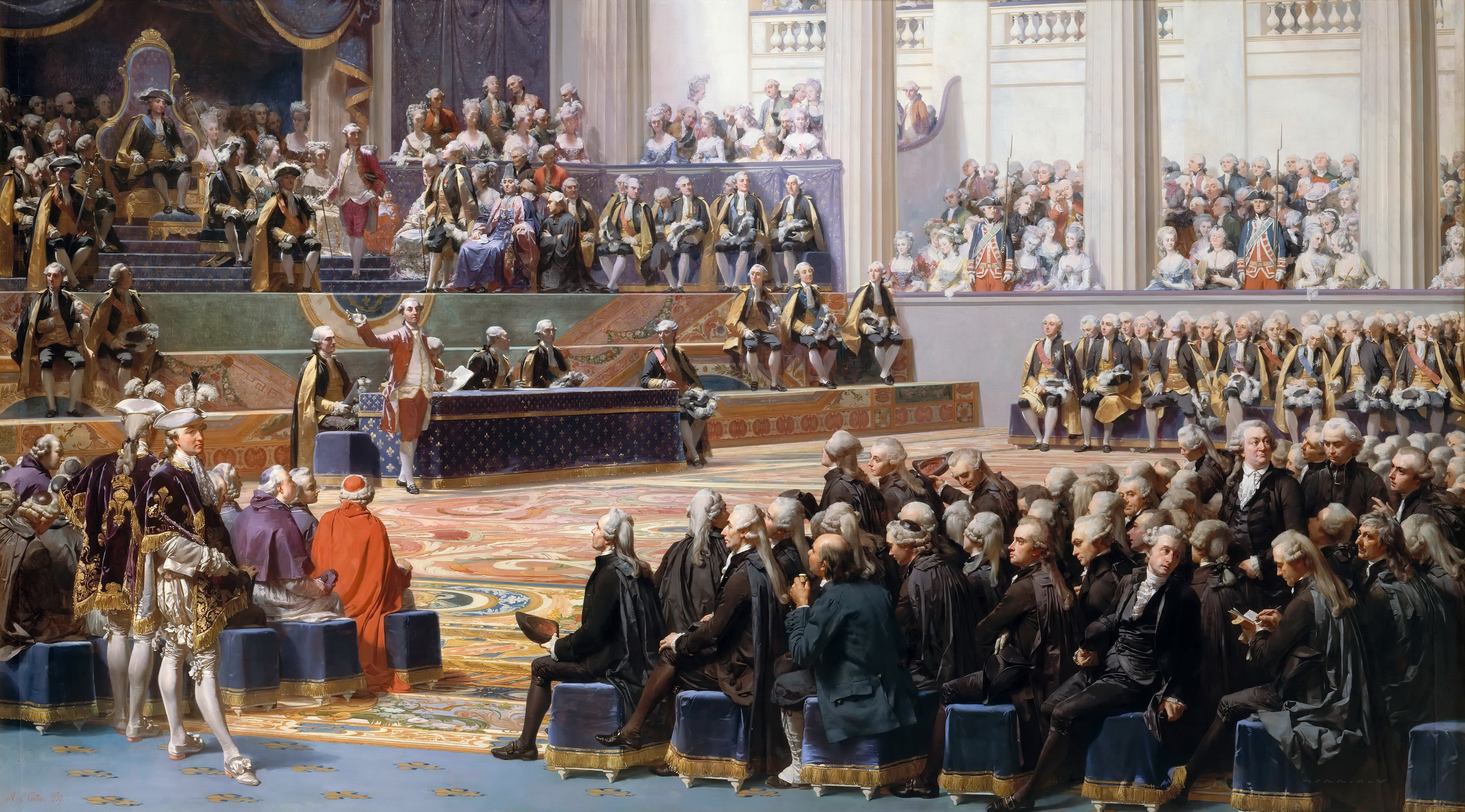The Assembly Slowly Grows More Radical

The opening of the Estates General. (Public Domain photo. Info can be found here)
The French people created a huge celebration on the first anniversary of the fall of the Bastille. General Lafayette would bring in the King to introduce the Declaration of the Rights of Man and the Citizen during this celebration. He and the King would swear oaths to it, with the King using the title “King of the French” instead of “King of France” for the first time. The US would have a delegation at the festivities (including Thomas Paine) who came with a US flag, which was actually the first time that the US flag was flown outside of the US.
The National Assembly had set itself to end after 1 year from the start, and didn’t allow themselves to be voted into the next legislature (Self-Denying Ordinance). The Assembly had changed the new government, but had failed in almost everything else. The military was in shambles and the economy hadn’t gotten any better due to the lack of leadership with singular direction.
There would be a vote for every position in the entire government (nearly 1
million positions), which included everything from file clerks to representatives. On top of the problems associated with doing this, they were attempting to do it while the government was completely broke. Once this was done they would have 1200 people in 1 room making decisions, which would prove to be mass chaos, exactly like Thomas Jefferson said it would. The dimensions of the room made it even more difficult, being very narrow with a walkway in the middle. This led to the groups dividing themselves based on political beliefs, with the liberals on the left and the conservatives on the right. This could be where the left/right concept came from, but other people claim it came from the British Parliament.
The most radically liberal political clubs would quickly become the most powerful in the Assembly, with moderates becoming the conservatives because the actual conservatives left the country. The one person that stood out for his radical posture was a lawyer named Maximilien Robespierre, who seemed to be so remarkably radical that no one could control him. Abbé Sieyès in the meantime, tried to work with both sides to try to make sure things could get done between the groups. The liberal Jacobin Club won the elections of 1791 and would promise more change, despite the fact that very few of them had any practical experience in government. They immediately made laws which stripped land from the émigrés if they refused to return to France. Lafayette looked into running for mayor because mayor Bailly was retiring from service, but this upset the radicals because he had always been a moderate. At the same time the people on the political right were worried that he was popular enough to take over as King, so he would be attacked by both sides during this election. With the odds stacked against him in this way he would lose the election in a landslide.
The National Guard had become a political powerhouse in their own right, but were plagued with inconsistent leadership because most of the officers had lefts as émigrés. The few noble leaders who had chosen to stay were often killed by their men as an example of refusing to allow them the privilege that nobles were used to. Rather than condemning this act, the Assembly would congratulate the troops for their actions, so the troops would continue this behavior. It would eventually become apparent that the Jacobins (and especially Robespierre) believed that no one could be trusted by the lowest of the soldiers, so military leadership would continue to suffer.
When the soldiers weren’t executing military leaders, the Assembly itself often got involved in doing this. Since military leadership was seen as a threat to the power of the Assembly, they often found ways to rid themselves of any leader who had a decent amount of power. One of the most extreme examples of this process was when General Bouillé was able to stop a soldiers revolt against him and save his own life. Instead of supporting him in this, the Assembly accused him of being anti-revolutionary by not embracing the soldiers attempt to murder him. He would be forced to flee from the country as an émigré before he was killed.
